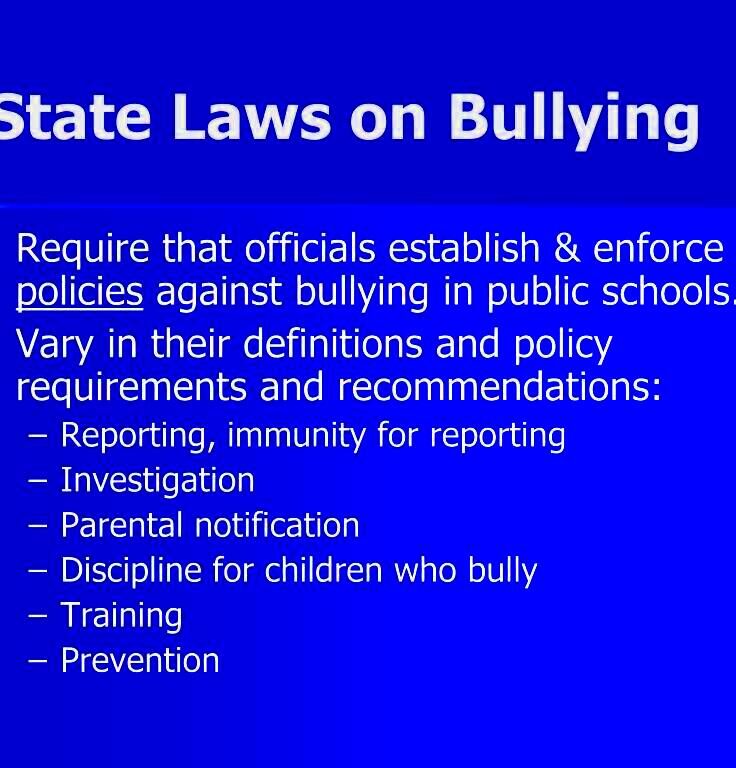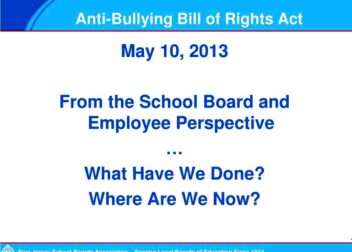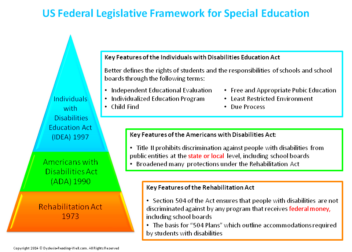Compliance with School Bullying Prevention Laws in Pennsylvania
In Pennsylvania, addressing school bullying is a top priority. The state has implemented specific laws designed to protect students and create a safer educational environment. These laws focus on prevention, reporting, and addressing bullying incidents to ensure that all students can learn free from harassment and fear.
Understanding Bullying and Its Impact on Students
Bullying can take many forms, including physical, verbal, and cyberbullying. It affects students not just during their school years but also has long-lasting consequences. Here’s how bullying can impact students:
- Emotional Distress: Victims often experience anxiety, depression, and low self-esteem.
- Academic Challenges: Bullying can lead to decreased academic performance and increased absenteeism.
- Social Isolation: Students may withdraw from friends and activities they once enjoyed.
- Long-Term Effects: The effects of bullying can extend into adulthood, impacting relationships and mental health.
Recognizing the signs of bullying is crucial for parents and teachers. These can include unexplained injuries, changes in behavior, or reluctance to go to school. Understanding these impacts is the first step toward effective prevention.
Overview of Pennsylvania Bullying Prevention Laws
Pennsylvania has established comprehensive bullying prevention laws aimed at protecting students. Here are some key aspects:
- Definition of Bullying: Pennsylvania defines bullying as intentional electronic, written, verbal, or physical acts that harm others.
- School District Policies: Each school district must develop and implement its own bullying prevention policy.
- Reporting Procedures: Schools are required to establish clear procedures for reporting and investigating bullying incidents.
- Training and Education: Schools must provide training for staff and education for students on bullying awareness and prevention.
This framework is designed to ensure that schools take bullying seriously and provide students with a safe learning environment. Compliance with these laws is not just about following regulations; it’s about fostering a culture of respect and safety for all students.
Responsibilities of Schools Under the Law
Schools in Pennsylvania have clear responsibilities under the bullying prevention laws. These obligations ensure that students feel safe and supported in their learning environment. Here are some key responsibilities schools must uphold:
- Developing a Bullying Policy: Every school district must create a comprehensive policy that defines bullying and outlines procedures for reporting and addressing it.
- Training Staff: Schools need to train teachers and staff on recognizing, preventing, and responding to bullying. This training is vital for fostering a supportive atmosphere.
- Informing Students and Parents: Schools should actively inform students and parents about the bullying policy, ensuring everyone understands the procedures and consequences.
- Monitoring School Environment: Regular assessments of the school climate are necessary to identify potential bullying situations and address them proactively.
By fulfilling these responsibilities, schools play a crucial role in preventing bullying and promoting a positive culture that values respect and safety.
Reporting and Investigating Bullying Incidents
Effective reporting and investigation processes are essential for addressing bullying in schools. Here’s how Pennsylvania schools should handle incidents:
- Clear Reporting Channels: Schools must establish multiple ways for students to report bullying, including anonymous reporting options.
- Timely Investigation: Once a report is received, schools are required to investigate the incident promptly. This ensures that issues are addressed before they escalate.
- Involving Parents: Schools should notify parents of both the victim and the alleged bully about the incident and the investigation process.
- Documenting Incidents: All reports and findings must be documented. This helps track patterns of behavior and aids in future prevention efforts.
These steps not only protect students but also help schools maintain accountability and transparency in handling bullying incidents.
Creating a Safe School Environment
A safe school environment is foundational for effective learning and student well-being. Here are some strategies schools can implement:
- Fostering Positive Relationships: Encouraging positive interactions among students helps build a sense of community and reduces the likelihood of bullying.
- Implementing Anti-Bullying Programs: Schools can adopt comprehensive programs that teach students about empathy, conflict resolution, and respect.
- Encouraging Bystander Intervention: Empowering students to speak up when they witness bullying can help create a supportive environment where bullying is less tolerated.
- Regularly Evaluating School Climate: Schools should conduct surveys and assessments to gauge students’ feelings of safety and belonging, using this feedback to make improvements.
By prioritizing a safe school environment, educational institutions not only comply with laws but also enhance the overall educational experience for their students.
Resources for Parents and Students
Parents and students can access various resources to help understand and combat bullying. Here’s a list of valuable tools and organizations that can assist:
- Pennsylvania Department of Education: The state’s education department provides resources and guidance on bullying prevention. Visit their website for official information and updates.
- StopBullying.gov: This national website offers information on recognizing, preventing, and responding to bullying. It’s a great starting point for anyone looking to learn more.
- National Parent Helpline: Parents can call this helpline for support and guidance on bullying issues. The trained advocates can provide valuable advice.
- School Counselors: Encourage students to talk to school counselors who can provide support, resources, and help with conflict resolution.
By utilizing these resources, parents and students can better equip themselves to handle bullying situations and foster a supportive environment at school.
Frequently Asked Questions about School Bullying Prevention
Understanding the ins and outs of bullying prevention laws can be tricky. Here are some frequently asked questions to clarify common concerns:
- What constitutes bullying? Bullying includes intentional acts that cause harm, whether physical, verbal, or cyberbullying.
- How can I report bullying? Schools must provide clear reporting channels, including anonymous options. Check your school’s policy for specific procedures.
- What should I do if my child is being bullied? Encourage your child to report the incident to a trusted adult and document any evidence of bullying.
- Are schools required to take action? Yes, schools are legally obligated to investigate reported incidents and take appropriate action to address them.
These FAQs can help clarify many concerns parents and students may have about bullying prevention laws and their rights.
Conclusion on the Importance of Compliance with Bullying Prevention Laws
Compliance with bullying prevention laws in Pennsylvania is not just a legal obligation but a moral imperative. By adhering to these laws, schools create an environment where every student feels safe, respected, and valued. Effective implementation of these laws leads to:
- Reduced Incidents of Bullying: Schools that actively address bullying see fewer incidents, fostering a more positive atmosphere.
- Enhanced Academic Performance: A safe and supportive environment allows students to focus on their education and perform better academically.
- Improved Mental Health: When students feel safe, their emotional well-being improves, reducing anxiety and depression related to bullying.
In conclusion, by prioritizing bullying prevention, schools fulfill their responsibility to protect students. Everyone—parents, students, and educators—has a role to play in creating a culture of respect and safety. Together, we can make a difference in the lives of our children.


